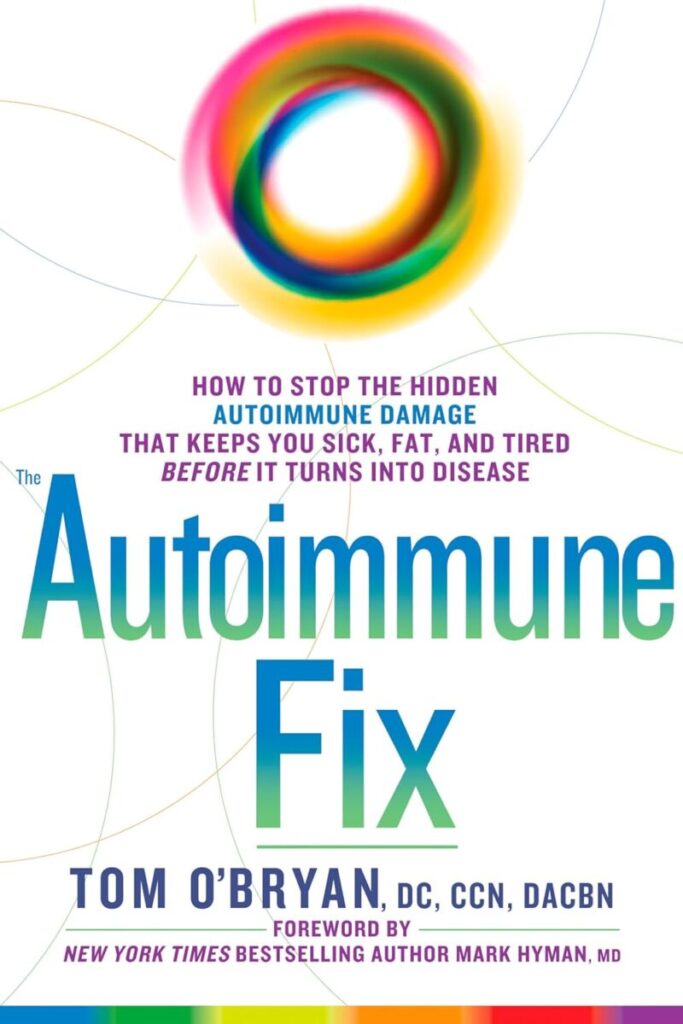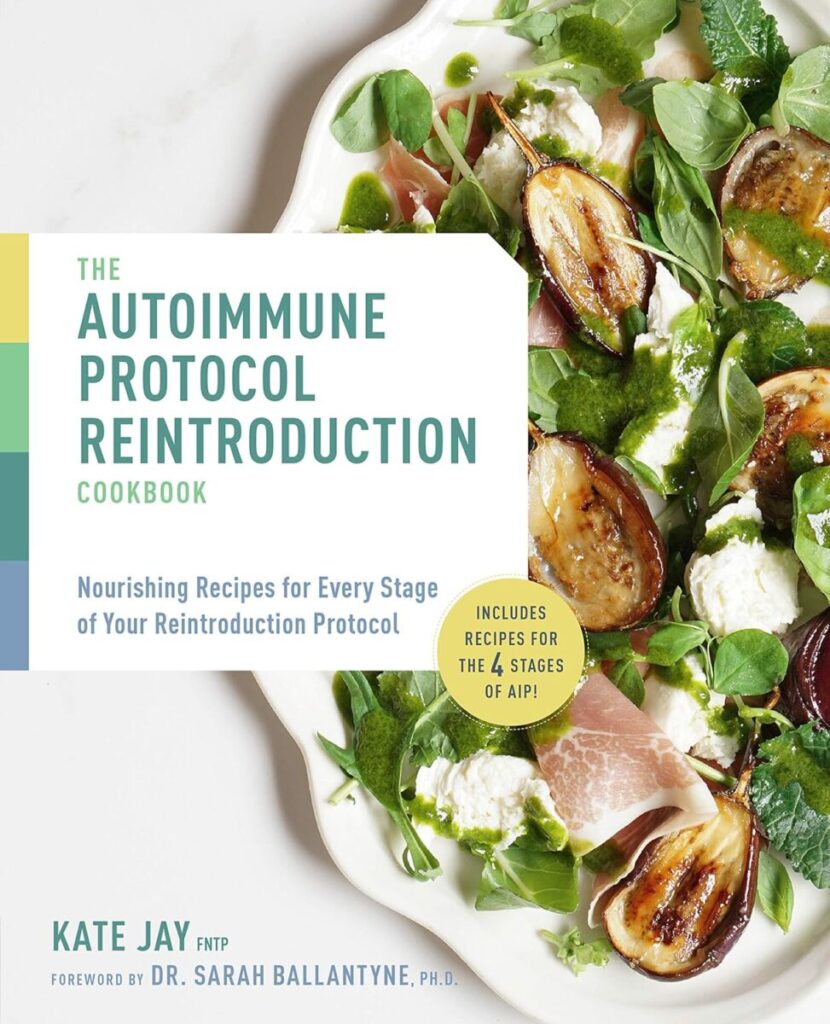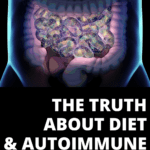Diet and your environment affect the genes responsible for health and longevity. Learn why diet can help you treat and prevent autoimmune disorders and what to eat for autoimmune disease.
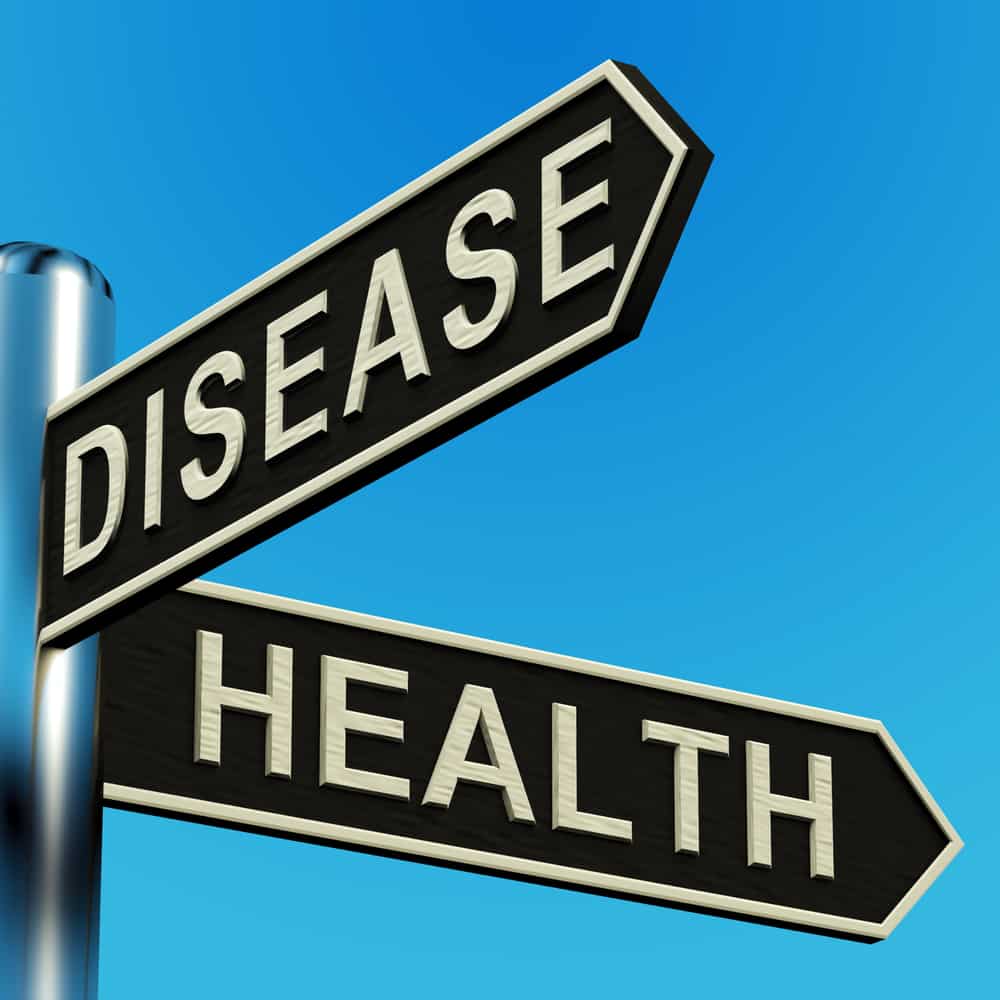
This post may contain affiliate links, which means I can receive a commission from any purchase made from the links. As an Amazon Associate, I earn from qualifying purchases. See the disclosure policy here.
Did you know that the right diet can help you prevent autoimmune disorders? Autoimmune disorders are on the rise. In fact, more than 24 million Americans have one or more of 100+ autoimmune diseases, according to the American Autoimmune Related Diseases Association (AARDA).
Autoimmune disorders occur when your immune system attacks and destroys healthy tissue, leading to fatigue, lack of energy, digestive problems, joint pain, and many other symptoms that severely limit your quality of life. The good news is that there are simple diet and lifestyle changes you can make to prevent or even treat autoimmune disorders. Read on to learn why diet and autoimmunity are so intertwined.
Autoimmune disorders can develop when the body’s immune system turns against itself, destroying healthy tissue and sometimes resulting in life-threatening symptoms.
Diet has been found to play an important role in how well your immune system functions and whether or not you experience autoimmune diseases. Therefore, if you risk developing one of these disorders, you should take preventative measures like eating healthier.
This post is all about What to Eat for Autoimmune Disease

Autoimmune Ally: What Foods to Eat for Autoimmune Health
You can drastically reduce inflammation and prevent autoimmune disorders by making a few small changes to your lifestyle. This article explains how everything works and why these changes are critical for healing and prevention.
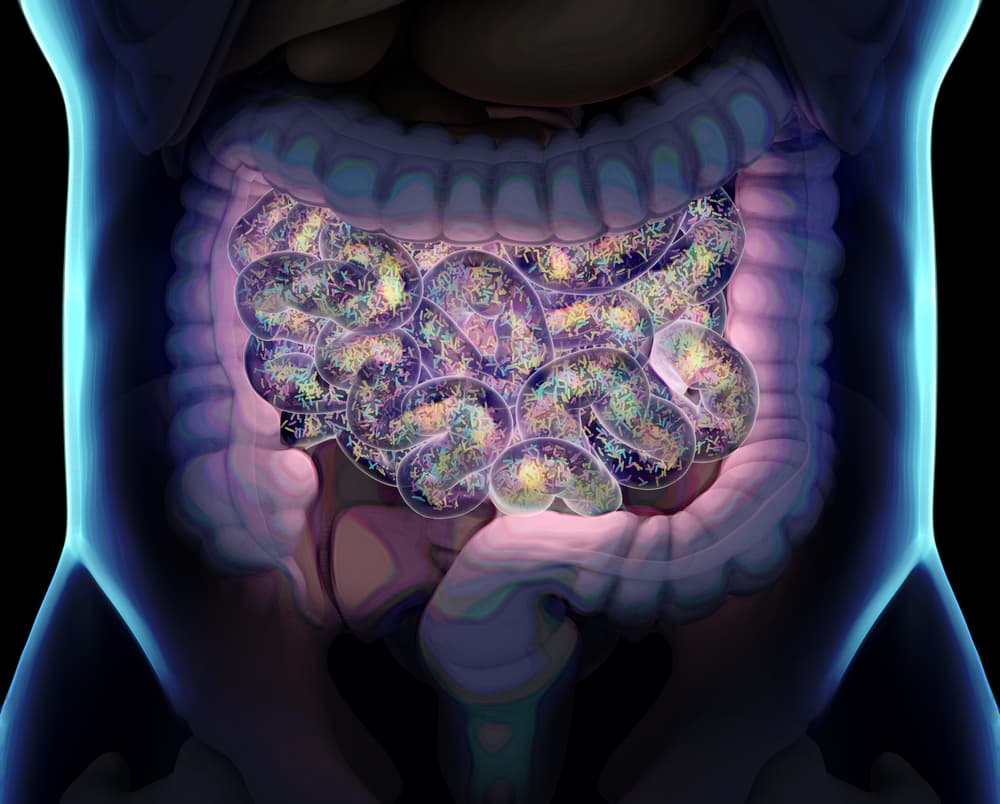
Preventing Autoimmune Disorders: Health Problems Begin in the Cell
The human immune system consists of a complex network of microorganisms with specific functions that protect the body from invading pathogens.
The microbiome can contain many organisms, such as bacteria, fungi, and yeast (1). It lines the respiratory, digestive, and urinary tracts, but most microorganisms reside in the large intestine.
This cell system prevents infection, mutated cell development that leads to cancer, and the breakdown of the body’s metabolic functions.
Unsurprisingly, an autoimmune flare can arise from the slightest change in the immune system’s ability to recognize a pathogen (2).
Most chronic diseases have cellular dysfunction, such as mitochondrial issues, inflammation, high cortisol levels, and other biochemical abnormalities (3).
Diseases begin with dysfunction, and such distortions determine the expression of genes (4). Unfortunately, such subtle changes in function can precede a diagnosis by decades (5).
Hence, chronic illnesses, such as autoimmune disorders, are challenging to diagnose and manage. Symptoms can be numerous. While treating the symptoms can occasionally relieve patients, the illness will continue to exist and possibly worsen without finding the real causes of diseases.

Autoimmune Trigger #1: Cellular Dysfunction in the Gut
The science of genomics reveals how a person’s genotype interacts with their environment to determine which genes activate.
Environmental factors such as geographical location, sleep patterns, smoking, stress, dietary habits, antibiotic exposure, and infections can affect genetic expression.
These factors can result in gut dysbiosis, which disrupts the homeostasis of the gut microbiota’s structure and function (6).
Problems arise when the microbiome becomes unbalanced, with more bad pathogens and fewer good guys.
Dysbiosis of the gut microbiome contributes to rheumatoid arthritis, metabolic disorders, diabetes, obesity, inflammatory bowel disease, and more (1).
The intestinal flora affects disease development by affecting intestinal immunity. When the microbiome is rebalanced, the regional immune system regains function, resulting in healing (7).

Environmental Factors Trigger Autoimmune Conditions
The gut microbiome is a network of microorganisms that can directly affect physiology. One slight error can cause a disruption.
Studies focusing on genome sequencing of the microbiome address the inherited risk of developing autoimmune disorders. This could transform the way physicians diagnose and treat diseases (2).
Removing environmental stressors rebalances the gut microbiome to a functional state and promotes a healthy immune system.
Learn more about how functional medicine treats autoimmunity here.
Autoimmune sufferers can improve their health by removing environmental irritants like household chemicals and products that release VOCs and processed foods made with conventionally farmed grains and dairy products.

Avoid Common Environmental Stressors
It is important to note that no two bodies are alike, and others do not tolerate things well-tolerated by some people. Discovering the best foods for autoimmune conditions for your health journey is vital. Here is a list of everyday environmental stressors.
- Antigen-presenting pathogens (viruses, bacteria, parasites, blood that is not your own, cancer cells)-(8)
- Diet (processed foods, conventionally farmed and processed grains (gluten sensitivities, high-fat, high-sugar “fast” foods, other inflammatory trigger foods.)-(9)
- Drugs (antibiotics and many medications have been known to induce autoimmunity.)-(10)
- Environmental toxins and pollutants
- Psychological stress-(11)
Problems in the Gut and Autoimmune Disorders
The complex gut microbiome affects calcium and vitamin D absorption, hormones, and immune response (12). Now considered an essential organ, the microbiome communicates with the immune system and directly affects its mechanisms (13). Also, the microbiome’s health is essential to regulating metabolism, fighting pathogens, and adequately digesting food.
When triggered by environmental stressors, the gut microbiota can enter a state of decline called dysbiosis.
This imbalance can decrease the microbiome’s diversity and increase the prevalence of problematic bacteria (14). Dysbiosis of the gut microbiota causes a myriad of chronic and autoimmune issues.
Autoimmune conditions are classified by extreme autoantibody production likely caused by changes within the gut microbiota from environmental irritants from diet and antibiotics, for example (15).
Genomic technology has provided great insight into the human microbiome. There is an essential link between gut microbiome problems and the onset and progression of autoimmune disease (6).
For example, chronic health conditions such as rheumatoid arthritis, multiple sclerosis, Crohn’s disease, and Parkinson’s disease have distinct gut microbiomes (6, 16, 15). These diseases are identified by looking for specific microorganisms.
Therefore, it is significant that autoimmunity depends upon the gut microbiome’s health.
For example, chronic health conditions such as rheumatoid arthritis, multiple sclerosis, Crohn’s disease, and Parkinson’s disease have distinct gut microbiomes (6, 16, 15). These diseases are identified by looking for specific microorganisms.
Inevitably, a person with an unhealthy gut microbiome will become ill.
Is your Gut Causing Autoimmune Symptoms?
An imbalanced gut ignites a list of inflammatory diseases and causes inflammation in the intestinal epithelium, leading to chronic intestinal inflammation (14).
Inflammation of the intestinal lining, known as “leaky gut,” can lead to holes that allow undigested food, pathogens, and toxins to pass through. In this case, the underlying tissue becomes inflamed, which can wreak even more havoc on the gut microbiota.
Modernly, this is a prevalent condition with people on a Western diet. This syndrome often accompanies many chronic conditions such as mental illnesses, asthma, allergies, gluten intolerance, chronic fatigue syndrome, fibromyalgia, arthritis, acne and obesity, and autoimmune disorders such as lupus, type 1 diabetes, and multiple sclerosis (17).
Importantly, people must work with their physicians to address the gut microbiome’s state to prevent a possible onslaught of autoimmune disorders.


Diet Changes the Gut – For Better or Worse
Changes in environmental factors such as diet can noticeably impact the gut microbiota’s health. In the United States and other Western countries, diet-related chronic diseases are the single largest cause of morbidity and mortality (18).
Unsurprisingly, these diseases did not exist in hunter-gatherer tribes or modernly in tribes outside Western countries.
Obesity and other chronic health concerns arose with modern agriculture and animal husbandry practices and increased with food production advancements such as packaged items and “fast food.”
Western diets affect the balance of the gut microbiota and increase autoantibody production, leading to autoimmune and inflammatory diseases such as multiple sclerosis (19).
Obesity, now commonly referred to as type 3 diabetes, is a chronic health epidemic across most Western countries. According to new research, high-fat, and salt diets alter the gut microbiota’s composition by lowering the bacteria count found in non-obese patients (20).
There is a link between gut dysbiosis due to a diet high in fats and salt and illnesses such as obesity, hypertension, inflammation, and autoimmunity. High fat and salt intake alters the gut microbiota and affects IgA responses, which induces autoantibody production (19).
These new insights into the gut microbiome’s biochemical pathways clarify how rapidly changes can occur.
This information is key to controlling the development of autoimmune disorders and chronic illnesses because positive changes to the gut microbiota can be as quick as disruptive changes.
Since consumption can rapidly change the microbiome’s composition, diet intervention is a promising tool for treating disease.
Diet is an Effective Tool for the Preventing and Treating Autoimmune Disorders
Autoimmune problems occur due to a combination of genetics and environmental stressors. An individualized diet successfully helps identify and eliminate some of these stressors.
According to research, the Western diet consists of refined sugars, salts, fatty meats, and dairy products that have caused nearly all chronic diseases since the Neolithic and Industrial eras.
Furthermore, we genetically adapt to our environment. These changes take time. Unfortunately, swift changes like how we produce and package foods result in chronic diseases due to our inability to adapt quickly (18).
Processed foods often contain contaminants that disrupt the gut microbiota. Several minor food components significantly affect the gut microbiome (21). Recently, more products that line grocery shelves contain numerous additives.
The United States Food and Drug Administration claims, “Because of inherent limitations of science, the FDA can never be absolutely certain of the absence of any risk from the use of any substance (22).” These products can be dangerous to sensitive individuals.
Many of the products made for human consumption contain non-food additives, so should they even be considered food?
Food has a significant impact on the immune system by affecting the microbiome of the gut. A recent study showed that unhealthy diets messed up the microbiome of the esophagus and caused an increase in bacteria associated with chronic gastrointestinal diseases (23).
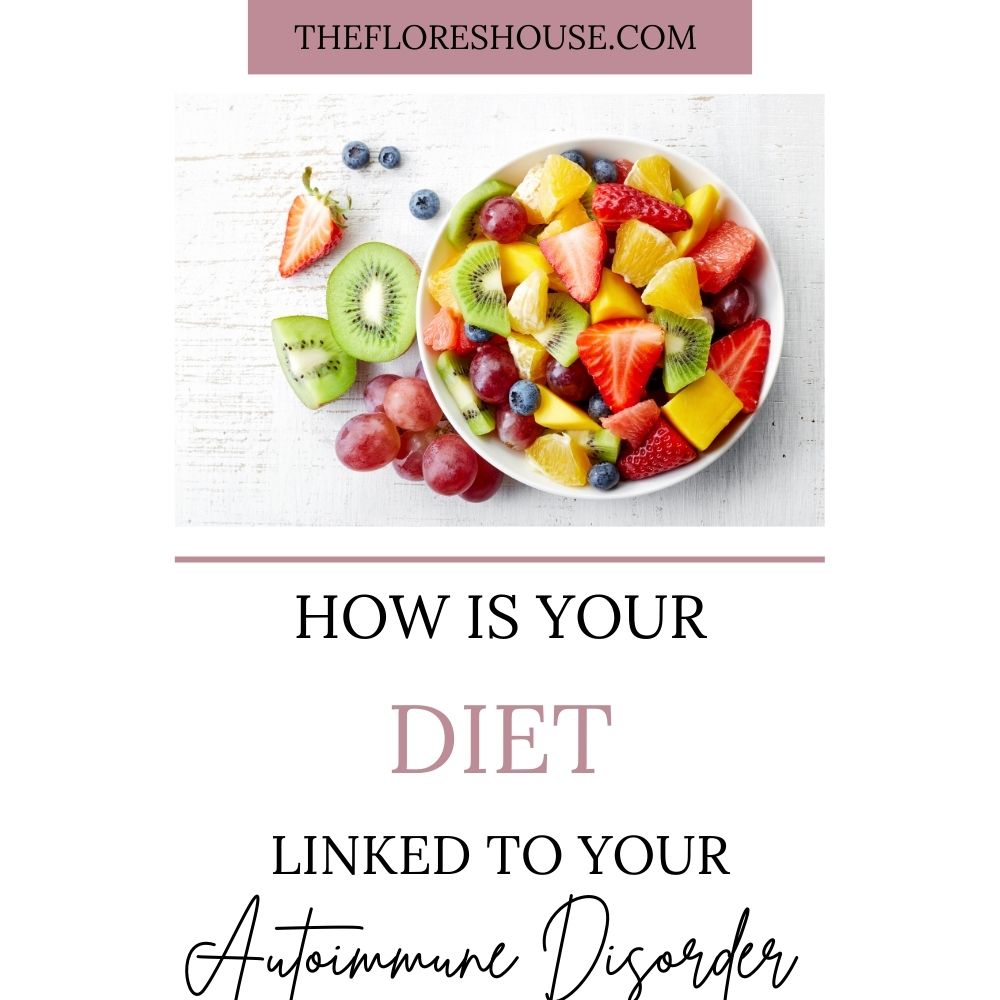
What is the Best Diet for Autoimmune Disorders?
Yes, diet is a HUGE factor in health. According to new research, diet contributes over 50% of the structural variations in the gut microbiome.
Evidence revealed that short-term diet interventions quickly alter human gut microbiota diversity (24). Although multiple environmental factors influence gut health, this study showed how substantial diet is. However, this is great news if you would like to improve your health.
Every meal is an opportunity to make quick and lasting changes.
Therefore, incorporating foods of high nutritional quality and reducing problematic foods is a simple way to reduce symptoms and change the course of illness.
A diet rich in plant-derived proteins, polyphenols, fiber, and short-chain fatty acids in fermented foods increases good bacteria and counters inflammation (19).
Similarly, it is noted that gluten, selenium, and iodine increase autoantibody production (19).
Replacing foods high in animal fats, refined sugar, salt, gluten and grains, dairy, alcohol, and additives with nutritionally dense organic fruits and vegetables, wild game, and fish is the key to preventing autoimmune disorders and improving the quality of life.
How will you use this information? You can change your future and the future of the ones you love. So, embrace health and choose a nutrient-dense diet to defend against chronic disease and prevent autoimmunity.
Read Next: The Nutrient-Dense Grocery Shopping List
This post was all about preventing and healing autoimmune disorders with appropriate changes to your diet and environment.
Diet and Autoimmunity Resources:
- Chu, F., Shi, M., Lang, Y., Shen, D., Jin, T., Zhu, J., & Cui, L. (2018). Gut Microbiota in Multiple Sclerosis and Experimental Autoimmune Encephalomyelitis: Current Applications and Future Perspectives. Mediators of Inflammation, 2018, 1–17. https://doi.org/10.1155/2018/8168717
- Fugger, L., Jensen, L. T., & Rossjohn, J. (2020). Challenges, Progress, and Prospects of Developing Therapies to Treat Autoimmune Diseases. Cell, 181(1), 63–80. https://doi.org/10.1016/j.cell.2020.03.007
- Wahls, T. (2014). The Wahls Protocol: A Radical New Way to Treat All Chronic Autoimmune Conditions Using Paleo Principles (Illustrated ed.). Avery.
- Bland, J. S., & Hyman, M. (2015). The Disease Delusion: Conquering the Causes of Chronic Illness for a Healthier, Longer, and Happier Life (Illustrated ed.). Harper Wave.
- Exclusive Interview with Jeffrey S. Bland, Ph.D., FACN, CNS. (2018, April 10). YouTube. https://www.youtube.com/watch?v=Qd4fnPXKOjQ&list=PLe1KWczkQkvD_7wbfKfOLaeAZpEGjhz22&index=14
More Resources for How Food Affects Autoimmunity:
- Dutta, S. K., Verma, S., Jain, V., Surapaneni, B. K., Vinayek, R., Phillips, L., & Nair, P. P. (2019). Parkinson’s Disease: The Emerging Role of Gut Dysbiosis, Antibiotics, Probiotics, and Fecal Microbiota Transplantation. Journal of Neurogastroenterology and Motility, 25(3), 363–376. https://doi.org/10.5056/jnm19044
- Zhou, B., Yuan, Y., Zhang, S., Guo, C., Li, X., Li, G., Xiong, W., & Zeng, Z. (2020). Intestinal Flora and Disease Mutually Shape the Regional Immune System in the Intestinal Tract. Frontiers in Immunology, 11, 1–14. https://doi.org/10.3389/fimmu.2020.00575
- Autoimmune disorders. (2021, November). Medline Plus. Retrieved January 4, 2022, from https://medlineplus.gov/ency/article/000816.htm
- Manzel, A., Muller, D. N., Hafler, D. A., Erdman, S. E., Linker, R. A., & Kleinewietfeld, M. (2013). Role of “Western Diet” in Inflammatory Autoimmune Diseases. Current Allergy and Asthma Reports, 14(1). https://doi.org/10.1007/s11882-013-0404-6
- Garza, A. P. (2021, March 8). Drug-Induced Autoimmune Diseases. Pharmacy Times. Retrieved January 4, 2022, from https://www.pharmacytimes.com/view/drug-induced-autoimmune-diseases
- Karl, J. P., Hatch, A. M., Arcidiacono, S. M., Pearce, S. C., Pantoja-Feliciano, I. G., Doherty, L. A., & Soares, J. W. (2018). Effects of Psychological, Environmental, and Physical Stressors on the Gut Microbiota. Frontiers in Microbiology, 9. https://doi.org/10.3389/fmicb.2018.02013
- Locantore, P., Del Gatto, V., Gelli, S., Paragliola, R. M., & Pontecorvi, A. (2020). The Interplay between Immune System and Microbiota in Osteoporosis. Mediators of Inflammation, 2020, 1–8. https://doi.org/10.1155/2020/3686749
Continued Resources
- Zhang Z. (2020). Predictive analytics in the era of big data: opportunities and challenges. Annals of translational medicine, 8(4), 68. https://doi.org/10.21037/atm.2019.10.97
- Weiss, G. A., & Hennet, T. (2017). Mechanisms and consequences of intestinal dysbiosis. Cellular and Molecular Life Sciences, 74(16), 2959–2977. https://doi.org/10.1007/s00018-017-2509-x
- Xu, H., Liu, M., Cao, J., Li, X., Fan, D., Xia, Y., . . . Zhao, H. (2019). The Dynamic Interplay between the Gut Microbiota and Autoimmune Diseases. Journal of Immunology Research, 2019, 1-14. doi:10.1155/2019/7546047
- Van den Hoogen, W. J., Laman, J. D., &’ t Hart, B. A. (2017). Modulation of Multiple Sclerosis and Its Animal Model Experimental Autoimmune Encephalomyelitis by Food and Gut Microbiota. Frontiers in Immunology, 8, 1–24. https://doi.org/10.3389/fimmu.2017.01081
- Campos, M. (2019, October 24). Leaky gut: What is it, and what does it mean for you? Harvard Health Blog. https://www.health.harvard.edu/blog/leaky-gut-what-is-it-and-what-does-it-mean-for-you-2017092212451
- Cordain, L., Eaton, S. B., Sebastian, A., Mann, N., Lindeberg, S., Watkins, B. A., O’Keefe, J. H., & Brand-Miller, J. (2005). Origins and evolution of the Western diet: health implications for the 21st century. The American Journal of Clinical Nutrition, 81(2), 341–354. https://doi.org/10.1093/ajcn.81.2.341
- Petta, I., Fraussen, J., Somers, V., & Kleinewietfeld, M. (2018). Interrelation of Diet, Gut Microbiome, and Autoantibody Production. Frontiers in Immunology, 9. doi:10.3389/fimmu.2018.00439

How to Prevent Autoimmune Disorders Resources:
- Seck, E. H., Senghor, B., Merhej, V., Bachar, D., Cadoret, F., Robert, C., Azhar, E. I., Yasir, M., Bibi, F., Jiman-Fatani, A. A., Konate, D. S., Musso, D., Doumbo, O., Sokhna, C., Levasseur, A., Lagier, J. C., Khelaifia, S., Million, M., & Raoult, D. (2018). Salt in stools is associated with obesity, gut halophilic microbiota, and Akkermansia muciniphila depletion in humans. International Journal of Obesity, 43(4), 862–871. https://doi.org/10.1038/s41366-018-0201-3
- Roca-Saavedra, P., Mendez-Vilabrille, V., Miranda, J. M., Nebot, C., Cardelle-Cobas, A., Franco, C. M., & Cepeda, A. (2017). Food additives, contaminants, and other minor components: effects on human gut microbiota—a review. Journal of Physiology and Biochemistry, 74(1), 69–83. https://doi.org/10.1007/s13105-017-0564-2
- Food Additives & Petitions. (2020, January 13). U.S. Food and Drug Administration. https://www.fda.gov/food/food-ingredients-packaging/food-additives-petitions
- Kaakoush, N. O., Lecomte, V., Maloney, C. A., & Morris, M. J. (2017). Cross-talk among metabolic parameters, esophageal microbiota, and host gene expression following chronic exposure to an obesogenic diet. Scientific Reports, 7(1), 1. https://doi.org/10.1038/srep45753
- Leeming, E. R., Johnson, A. J., Spector, T. D., & Le Roy, C. I. (2019). Effect of Diet on the Gut Microbiota: Rethinking Intervention Duration. Nutrients, 11(12), 2862. https://doi.org/10.3390/nu11122862
This post was all about how to manage your autoimmune disorder with diet.

